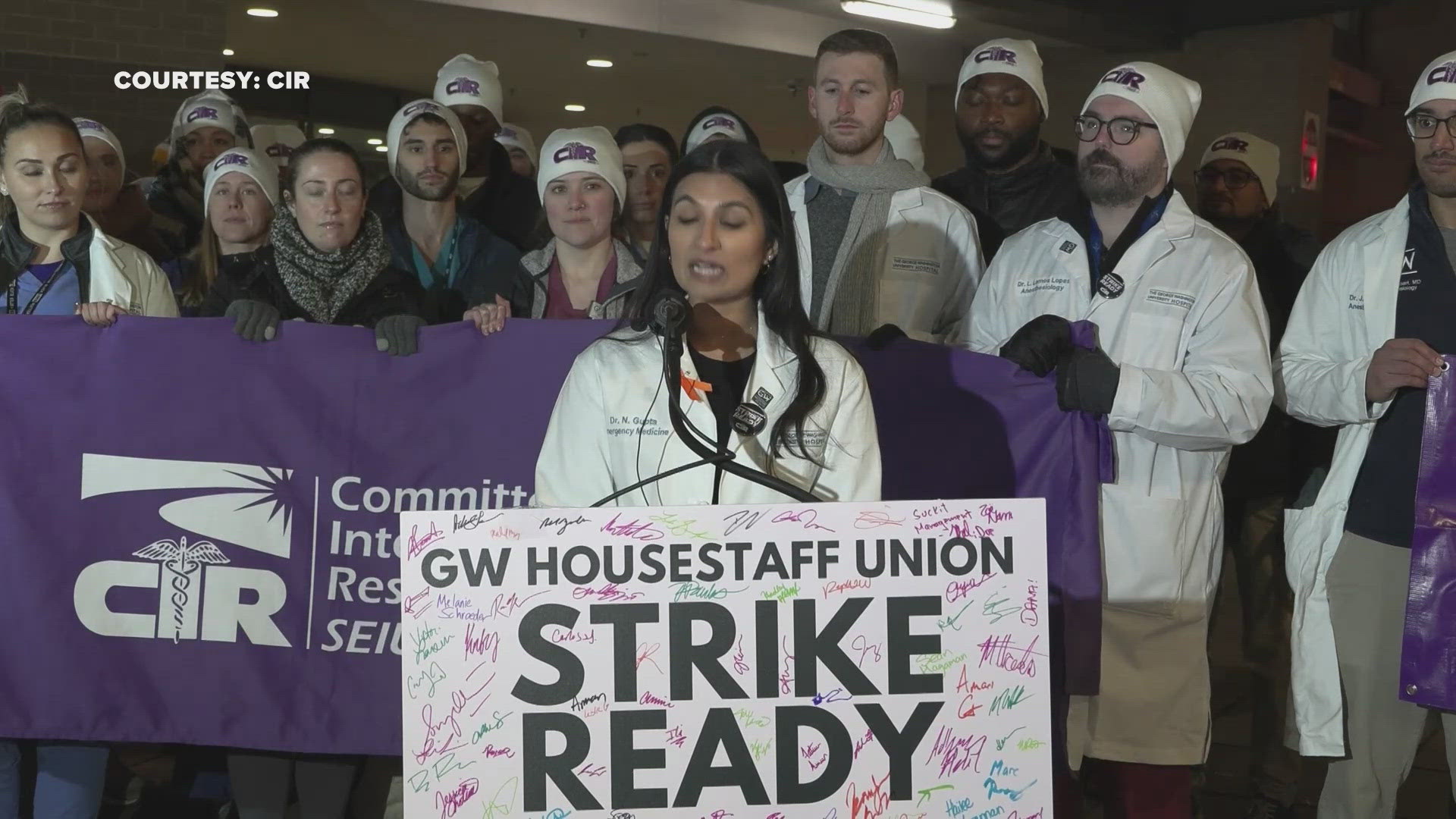WASHINGTON — Nearly 500 resident doctors at George Washington University-affiliated hospitals are set to strike starting Tuesday morning. The university now has less than a day to make a deal with the union to avoid the strike after negotiating for the past year.
Resident physicians and fellows who work at hospitals throughout the DMV owned by GWU voted Dec. 3, authorizing an unfair labor practice strike. Almost 99% of voting members voted for the strike. Bargaining meetings since then have yet to end with a resolution. On Monday morning, the Committee of Interns and Residents (CIR/SEIU) approved a three-day strike beginning at 6 a.m. Tuesday.
"We hoped it would not get this far and remain committed to bargaining in good faith to achieve what we need at the bargaining table," the union wrote on Monday. "However, it’s become increasingly clear that the only way GW executives will offer a fair agreement and stop violating federal labor law is by conducting a strike."
The GWU-employed doctors say they regularly work over 80 hours a week and earn hourly wages as low as $15. And negotiations for a new contract have been stalled for over a year.
They cite the extreme working hours, low wages and a lack of institutional support for the strike authorization, saying it is “impossible to maintain their own well-being while providing high-quality care for their patients,” according to a press release.
"This is not a decision we made lightly," emergency medicine resident at GWU Hospital Dr. Neha Gupta wrote in the press release. "We are healers and caregivers who have dedicated our lives to serving our patients and communities. But we are also human beings — and we have been pushed to our breaking points. Resident well-being is patient well-being, and without a fair contract, we will continue to struggle to meet the needs of our patients and sustain the physician workforce this community deserves."
WUSA9 reached out to GWU Monday for a statement, and university spokesperson Shannon McClendon said they are continuing to negotiate in hopes of avoiding a strike.
"The university continues to engage in good faith negotiations with the resident union with the goal of reaching an agreement prior to the intended strike date," McClendon wrote. "If the residents choose to strike, university and clinical leaders will implement contingency plans, which includes patient communications, that will enable us to continue to deliver high quality care and ensure patient safety."
As part of their conditions, the doctors are asking for increased wages, expanded parental leave and improvements to mental health benefits.
The impending strike comes after a third year resident at GWU hospital died by suicide earlier this year. In a note, he wrote about burnout and his experience training at the hospital, and said he believed other residents were at risk. After his death, a proposal for a supplemental mental health benefit was rejected by GWU leadership.
Burnout affects 50% of resident doctors and clinical depression affects 25%, according to union reps. Suicide is the leading cause of death for male residents and the second leading cause for female residents, according to a press release.
"We're here because we care deeply about our patients and this institution, but we cannot continue to give everything we have while GW leadership continues to delay," Neurology resident Dr. Elsa Alaswad said. "They still have the chance to do the right thing — support their physicians, avert a strike, and invest in the future of healthcare for the DMV."

